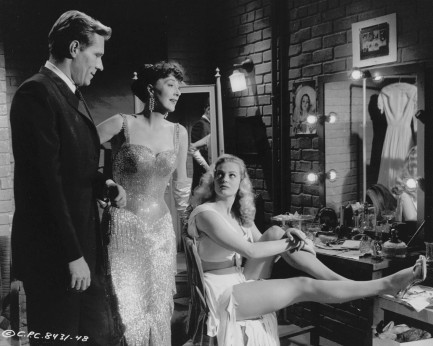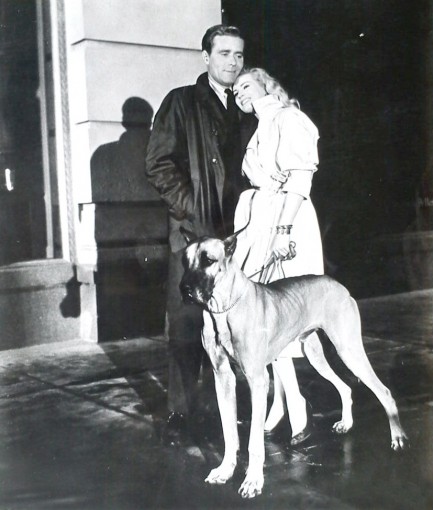 Any port in a storm—except maybe this one. 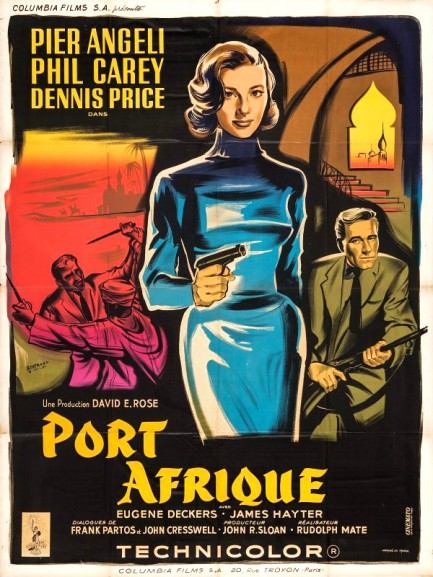
This French poster for the British made film Port Afrique was painted in a style that made us certain it was the work of Constantin Belinsky. But nope—it's signed by André Bertrand, and it's a very nice piece. As the art indicates, the movie is a North African adventure, a vehicle for Italian rising star Pier Angeli, and it can be described with one word—exotic. The filmmakers turned the E dial up to 11, location shooting in Tangier to create a fictional city of Port Afrique that's part Berber, part French, and part Spanish. Casablanca comparisons are inevitable, but solely in terms of exteriors Port Afrique is greatly superior. There's simply nothing like the real thing. The movie is also shot in color, which adds to its appeal, even if it detracts a bit from its noirish ambitions.
As in Casablanca, much of the action in Port Afrique revolves around a bar, in this case Le Badinage, which seemingly can afford to have more performers than customers. The bar's beautiful chanteuse—there's always a beautiful chanteuse—is played by the elfish Angeli, who's stuck in town without a passport and suffering under the attentions of the proprietor Nino. The threat in his overtures is unspoken but clear—no punani, no passport. Into this situation arrives a wounded American pilot with the unlikely name Rip Reardon, played by future b-movie stalwart Phil Carey. After his onscreen run he would find himself in soap opera purgatory as Asa Buchanan on One Life To Live, but here he gets his chance to help anchor a big drama. Shortly after Rip arrives his wife turns up dead. The cops call it a suicide, but Rip decides to take the investigation into his own hands, with all the usual twists and turns.
Port Afrique has a lot of problems. The script is clunky and improbable, the motivations of its characters murky, and the chemistry between its stars lukewarm. Carey ended up on soap operas for a reason, clearly on display here. He has little range, and none of the heft needed for his role. As for Angeli, she never became the superstar her advocates intended, and again, you can see why. She's better than Carey for sure, yet she still lacks the fire her role needs. But here's the thing—we think, for serious film buffs, the movie is worth watching anyway. It looks amazing, from the cinematography to the production design, and its goal of being a Technicolor noir is worth examination and discussion. But casual film fans may want to steer clear. After premiering in the U.S. in 1956 Port Afrique reached France today in 1957.
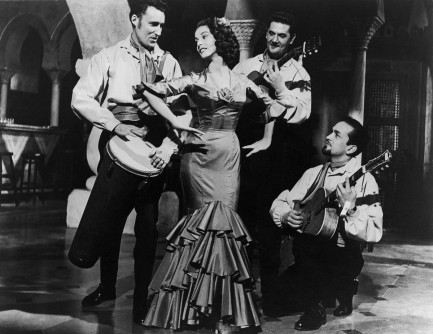 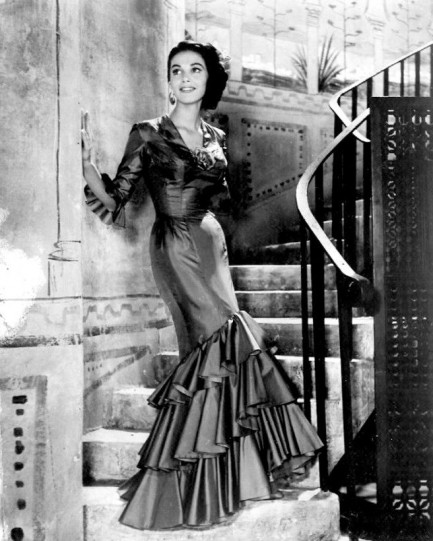 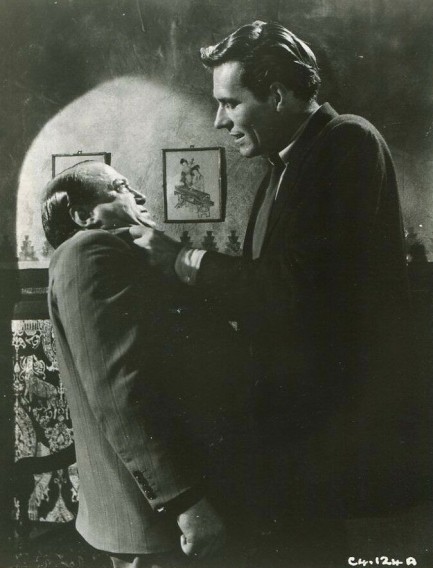 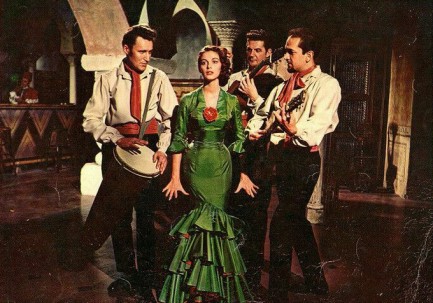 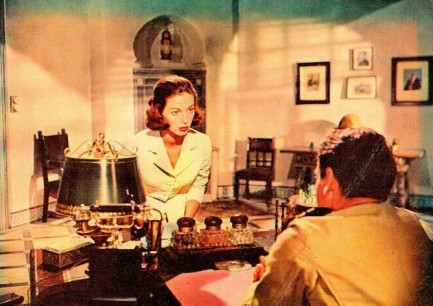 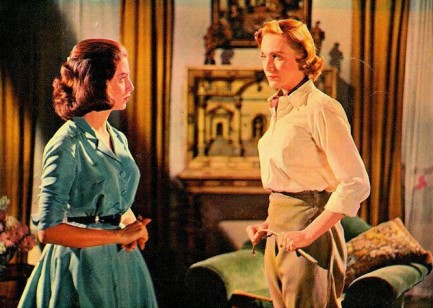 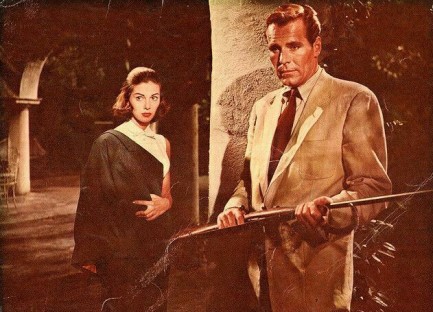 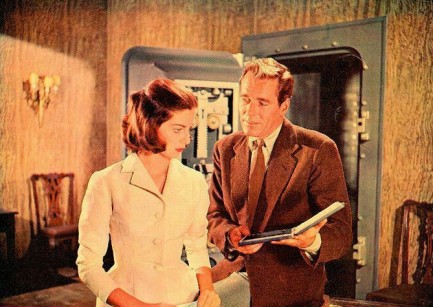 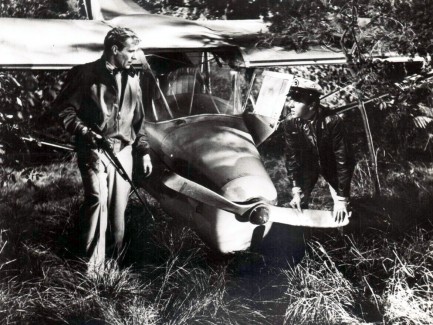 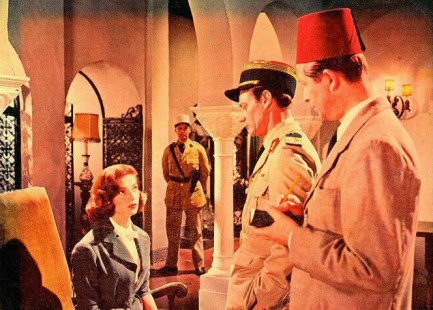 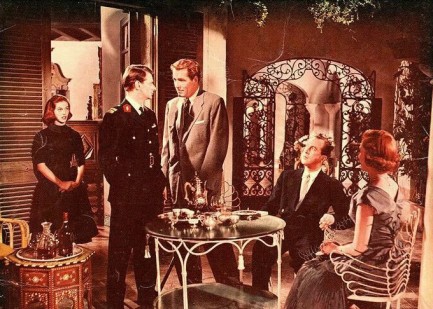 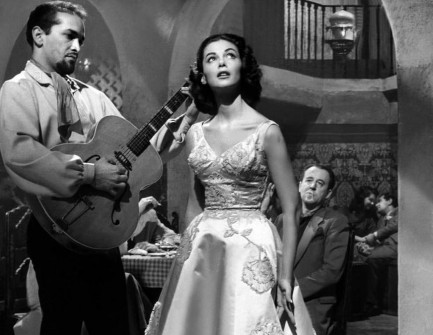 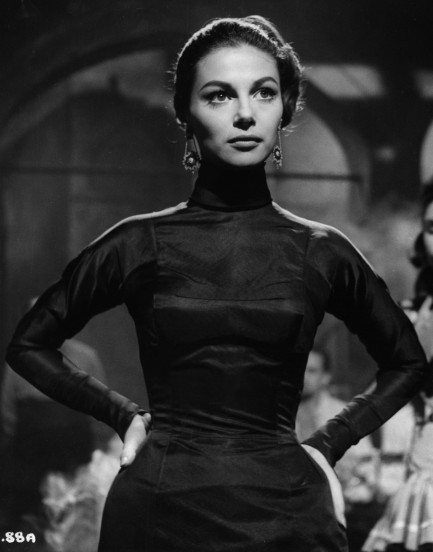
|
 |

The headlines that mattered yesteryear.
2003—Hope Dies
Film legend Bob Hope dies of pneumonia two months after celebrating his 100th birthday. 1945—Churchill Given the Sack
In spite of admiring Winston Churchill as a great wartime leader, Britons elect
Clement Attlee the nation's new prime minister in a sweeping victory for the Labour Party over the Conservatives. 1952—Evita Peron Dies
Eva Duarte de Peron, aka Evita, wife of the president of the Argentine Republic, dies from cancer at age 33. Evita had brought the working classes into a position of political power never witnessed before, but was hated by the nation's powerful military class. She is lain to rest in Milan, Italy in a secret grave under a nun's name, but is eventually returned to Argentina for reburial beside her husband in 1974. 1943—Mussolini Calls It Quits
Italian dictator Benito Mussolini steps down as head of the armed forces and the government. It soon becomes clear that Il Duce did not relinquish power voluntarily, but was forced to resign after former Fascist colleagues turned against him. He is later installed by Germany as leader of the Italian Social Republic in the north of the country, but is killed by partisans in 1945.
|

|
|

It's easy. We have an uploader that makes it a snap. Use it to submit your art, text, header, and subhead. Your post can be funny, serious, or anything in between, as long as it's vintage pulp. You'll get a byline and experience the fleeting pride of free authorship. We'll edit your post for typos, but the rest is up to you. Click here to give us your best shot.

|
|
















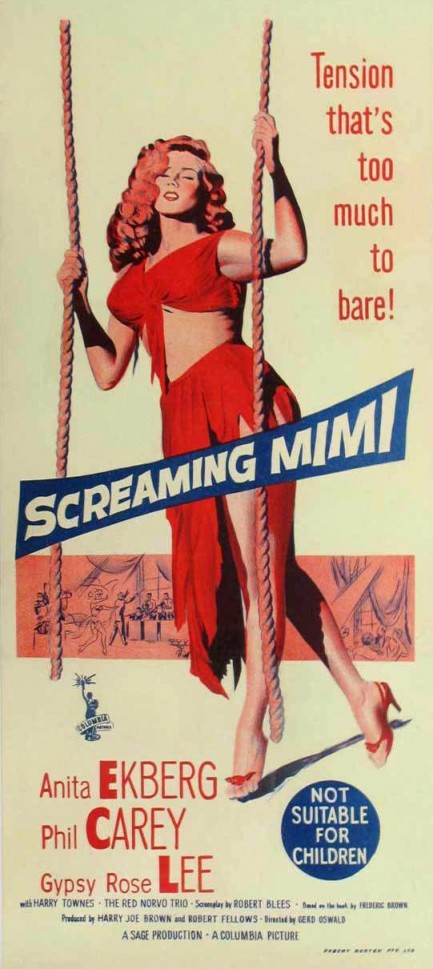
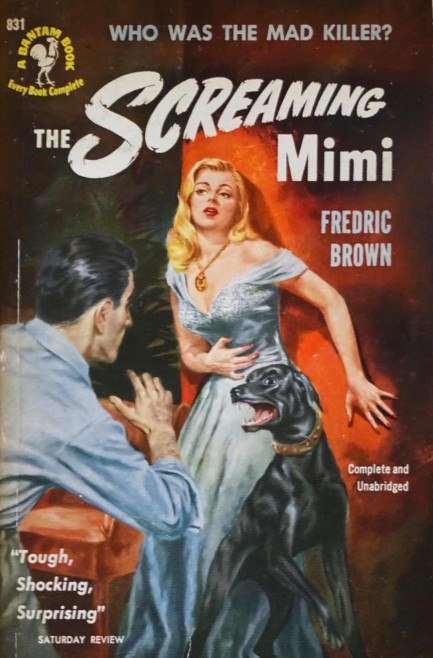 everywhere she goes, as the doctor meanwhile tries to protect her fake identity and keep her and the reporter from falling into bed together. Chances of success? Probably not very good.
everywhere she goes, as the doctor meanwhile tries to protect her fake identity and keep her and the reporter from falling into bed together. Chances of success? Probably not very good.